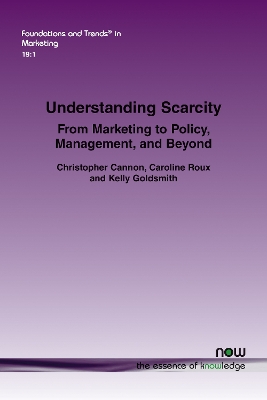Foundations and Trends® in Marketing
1 total work
Understanding Scarcity
by Christopher Cannon, Caroline Roux, and Kelly Goldsmith
Published 11 November 2024
Understanding Scarcity: From Marketing to Policy, Management, and Beyond explores the intricate relationship between scarcity and consumer behavior, drawing on decades of research across marketing, economics, and psychology. Marketers have long utilized scarcity tactics such as "limited time" or "limited quantity" promotions to boost demand, rooted in the principle that "scarcity increases value". The 2007-2009 Great Recession ignited a fresh wave of interest in scarcity as more than just a promotional tool—it became a complex psychological state driven by macroeconomic factors, personal experiences, and even subtle environmental cues. This monograph captures that shift, examining scarcity as both a chronic condition and a mindset that influences every stage of consumer decision-making.
This monograph highlights how scarcity can be triggered by anything from financial deprivation to simple social comparisons. The authors illuminate the profound impact of scarcity on consumer motivation, willingness to pay, and effort expended to acquire products. Drawing from a diverse range of findings, this work offers novel implications for public policy, marketing strategies, and management decisions. The authors not only review historical and contemporary research on scarcity but also offer a forward-looking agenda for future studies. Perfect for scholars and practitioners alike, this monograph offers a rich understanding of how scarcity shapes behavior, and how businesses and policymakers can harness power to better serve their audiences.
This monograph highlights how scarcity can be triggered by anything from financial deprivation to simple social comparisons. The authors illuminate the profound impact of scarcity on consumer motivation, willingness to pay, and effort expended to acquire products. Drawing from a diverse range of findings, this work offers novel implications for public policy, marketing strategies, and management decisions. The authors not only review historical and contemporary research on scarcity but also offer a forward-looking agenda for future studies. Perfect for scholars and practitioners alike, this monograph offers a rich understanding of how scarcity shapes behavior, and how businesses and policymakers can harness power to better serve their audiences.
